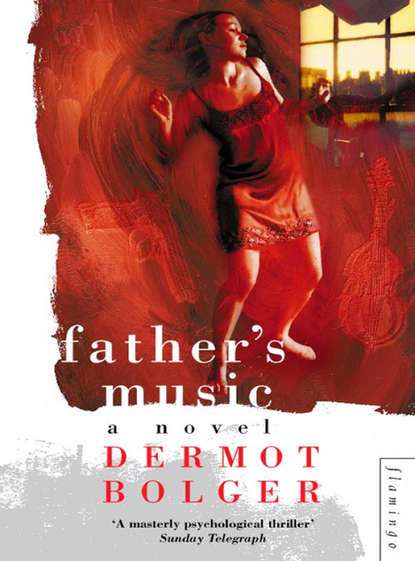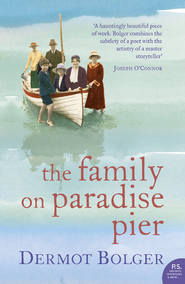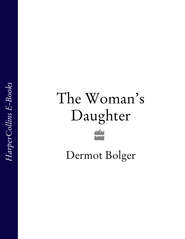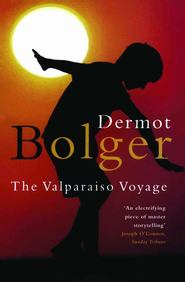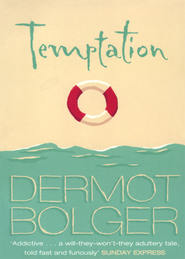По всем вопросам обращайтесь на: info@litportal.ru
(©) 2003-2025.
✖
Father’s Music
Автор
Год написания книги
2018
Настройки чтения
Размер шрифта
Высота строк
Поля
I turned, my hand holding closed the blouse I hadn’t time to button up. I was trembling.
‘You’re so clever, aren’t you?’ I sneered. ‘You always know how to shift it back on to me.’
‘You should never think of yourself like that.’ Luke sounded like a concerned father. He had retreated into his watchful, non-committal self.
‘Just how do you think of me?’
‘You don’t need to ask.’
‘No,’ I replied. ‘It’s obvious you’re using me. Once you come you’d sooner wave a magic wand and make me vanish.’
‘You never wanted lies before.’
‘I want the fucking truth.’
‘The truth is I’ll be here for you next week and every week.’ He watched as I managed to do up the last buttons on my blouse. I hated myself for shaking, but who the fuck was Luke anyway? I wasn’t asking him to leave his wife, I didn’t want more of his precious time, but just that once he might show a shred of affection.
‘You’re wasted in tiles,’ I said, grabbing my coat. ‘You should have gone into plastics. You could have simply moulded a likeness of me to blow up.’
I slammed the door. I could imagine the receptionist lifting her head. But when I got downstairs I found that for once I couldn’t stare back at her because that was how I felt, a cheap tart, some man’s weekend piece of fluff. I kept my head down until I reached the street and ran.
I didn’t go back the following Sunday or the Sunday after that. I did nothing, except sit in the flat and smoke roll ups. I stared blankly at titles in the video shop. I splashed out on cheap wine but couldn’t even seem to get drunk. Roxy and Honor had stopped calling, perhaps guessing at all the times I was really in with the light out. I could have called for them or taken off by myself like I used to, but I seemed drained of emotion.
There were Christmas lights everywhere, late night shopping and office parties. I considered phoning Harrow, but I didn’t want to think of home or Christmas or anything which might drag the past back. One night I dreamt about that old black monkey and woke scared and unsure of where I was. Our affair was over, I told myself. I needed my own life, not some other woman’s cast-offs. In Gran’s pet phrase, gleaned from years of specialists, I had an addictive personality. Luke was the latest addiction to break.
But Luke was the first encounter to really affect me since my mother’s death. Everything else had a second-hand flavour. I wondered if his wife had consented all along. Was that why he had been so open in the Irish Centre? But I knew she didn’t know, because wives never do, and I was trying to justify something which had increasingly disturbed me. Every day I told myself it was finished and yet that statement seemed too definite for something as vague as our relationship. Some days I decided I was just playing it cool and letting him sweat for a while. I could break this habit whenever I wanted, but perhaps I should use Luke to get me over the loneliness of Christmas. The problem was that his absence made me realise how empty my life was.
On December the fifteenth I decided to visit his shop. I was on a tube and impulsively stayed on after my stop. I watched the stations flash past, not certain if I’d actually go in or what I expected to happen if Luke was there. Maybe I wanted to haul our relationship out into the wintry light of a Wednesday afternoon and see if anything remained. I just knew I couldn’t leave matters as they stood and I couldn’t walk back into that hotel any more than I could break away from Luke.
The store was crowded with serious-looking DIY folk beautifying their houses for Christmas. Piped carols were interrupted by special offer announcements. I felt an almost vengeful enjoyment in being there, setting the agenda for once. I moved around the aisles, watching his staff work and wondering if he was here or in the smaller shop a few miles away. The staff were young and well trained, marked out by red company jumpers and enthusiasm. I could hear them repeat the same soothing phrase, ‘I’m not trying to sell you this but it might just suit …”
A supervisor in a dark suit checked off a stocklist with a visiting sales rep. I passed him twice before I stopped to look back. It was Luke. I watched his eyes flick between the printed order form and the shelves. I felt chilled. I hadn’t recognised him and now, when I did, I realised that I didn’t know this man and I could never have slept with him. The rep was leaving. Luke called something after him. Even his voice sounded different. I was watching a chameleon. Luke turned to look straight through me for several moments before it occurred to him who I was. His face changed but only slightly. It showed neither encouragement nor surprise. I realised I couldn’t talk to him here, I had nothing to say to this man. I backed away, fleeing down a side aisle to escape.
The following Sunday I left it late before deciding to visit the hotel. There were delays with the tube and when it finally came three girls stood by the door laughing hysterically at their own inane comments, as if anxious to antagonise the whole carriage. After Wednesday’s visit I had sworn never to go near that hotel again. Yet at King’s Cross I raced through the passageways connecting the Northern and Circle lines.
I got stuck behind an old man struggling up the escalator with a suitcase. The case stuck out, blocking the left side where people tried to rush past. They cursed him silently and not so silently as he ignored the log-jam behind him. There was something unnerving in his stillness as he stared up the escalator as though a great fate awaited beyond the ticket barrier, which he had only to haul his battered case across the forecourt to confront.
Honor once told me she believed in angels after seeing one pass her window as a little girl. Momentarily I forgot Luke as I watched the old man, fixated by the notion that he was a soul on its ultimate journey. Perhaps this underground was full of ghosts that nobody noticed as they vanished down tunnels at the end of deserted platforms. I couldn’t remember if I had read about such a notion, but, as a child, shabby old men with cases had fascinated me with the unspoken fear that they were my dark father come back.
The suitcase bumped over the rim of the escalator and the old man stumbled, trying to hold it. I pushed past and ran down more stairs just in time to catch the train pulling out on the Circle Line. Yet all the way to Edgware Road I felt an obscure foreboding that I hadn’t stopped to help him.
There was no guarantee that Luke would have come or would wait this late. But I felt he would have taken my appearance in the store as a sign that I wanted to talk. If he didn’t show up then at least I’d be freed from the illusion that I had found somebody who needed me.
I emerged at Edgware Road into light rain and walked quickly on. Looking back, I realise that if I had paused to help the old man with his case I might have missed my connection and arrived so late that I would have run past the shops opposite the Irish Centre. Instead I slowed to stroll casually past so as not to attract attention. Apart from the restaurant with its bored belly dancer, only the newsagent was open, although even he had one shutter down. I saw him closing up, with a huge rack of foreign newspapers pulled in out of the rain. An Irish Sunday paper was there, incongruous among the mass of Arabic newsprint. I could hardly see the photograph in it and had gone past when the eyes drew me back. I leaned against the glass. It couldn’t be Luke, I thought, starting to panic. It was like him, but the face was stockier, the eyes more cold. Ironically it was the suit I recognised first, because, as suits go, Christy Duggan’s taste was pretty appalling. The photograph was obviously a family one, taken at a christening or wedding. I banged on the glass. At first I thought the shopkeeper wasn’t going to bother opening up. The paper was folded, but I could still make out the headline, Dublin Gangland Murder.
I stood outside under a streetlamp, reading the account of his killing over and over until the rain distorted the newsprint. Now I knew that Luke wouldn’t be in the hotel. He would have no way of letting me know the news and no way of guessing that I knew. But I walked on anyway, in case there was a message at reception. I wanted there to be a different receptionist, but the same one eyed me coldly, sensing she had the upper hand.
‘Is there a letter for me here?’ I asked.
‘I’m not his messenger,’ she retorted. ‘Go up and ask him yourself.’
She turned a page of her magazine, deliberately not looking up until I’d gone. I reached the top of the stairs. I hadn’t expected this. I must be important if Luke had found time to see me tonight. We had always kept emotions at bay and now I felt ill-equipped to console him. It didn’t seem right to walk in on his grief. I knocked twice before he opened the door. If he had been crying it was well hidden. He stepped back to allow me in.
‘Luke, I know and I’m sorry,’ I said.
He gave a half shrug. ‘It was all my fault.’
Even when confronting death he seemed composed. His suit was immaculate although the shirt collar looked scuffed. His manner was more apologetic than mournful.
‘You can’t blame yourself,’ I said. ‘I’m just surprised you came tonight.’
‘Why?’ he asked. ‘We can’t let setbacks get in our way.’
He took a pull of his cigar and I realised that my suspicions were right all along. He was a total chameleon, a conman who felt nothing for anybody. I remembered his hands on my neck that first night. He could have killed me and thought nothing of it. Luke studied my face, concerned.
‘What’s wrong, Tracey?’ he said. ‘I’m here to apologise for the row. I’m sorry about the shop, but we’re so busy before Christmas that I was miles away. You were gone before I’d time to say anything.’
He hadn’t realised I was talking about Christy. He thought I didn’t know what had happened.
‘I don’t fucking believe this,’ I sneered. ‘You don’t even let death get in the way of a quick fuck!’
I backed away, ready to flee and Luke reached a hand out.
‘Don’t fucking touch me,’ I shouted. Then I looked at his eyes and realised that Luke hadn’t heard the news from Dublin.
‘Where have you been all day?’
He looked confused by the question. ‘I was in Holland since Friday, buying stock from a tile shop closing down over there. I took the van across. It’s parked outside still.’
‘Oh my God.’ I paused but couldn’t find a way to soften the words. ‘Luke, I’m sorry, but your brother Christy was shot dead in Dublin.’
Only when I held up the sodden newspaper did Luke realise I was serious. His face changed. He took it from me and turned away. I saw his head move as he scanned the blurred columns. Newsprint had stained my hands, the words printed backwards across my fingers. I looked up and realised that Luke was no longer attempting to read. He was silently crying. I went to put my arms around his shoulders, then stopped. Luke had always maintained an emotional distance between us. I could only watch, afraid that any attempt to console him would be rejected.
‘Would you like me to go?’
‘No. Please.’ He walked to the window and put his hands on the pane. I could see him reflected in it and he could see me.
‘You were close, weren’t you?’ I said.
‘He could beat the crap out of me, but he’d murder anyone who put a finger near me as well. I was fifteen before I’d clothes of my own. I lived in his hand-me-downs, vests, underpants, even his shoes sometimes.’ Luke turned. His face seemed to have aged a decade. ‘Even adults were scared of him. He’d take on blokes twice his size and beat them. Yet I was the one always trying to mind him.’
I knew by the way Luke stood that he wanted to be held. I put my arms around him and he buried his face in my hair where I couldn’t see him cry. I recalled a story he once told me, set on a factory roof somewhere in Dublin called Rialto. Luke had heard that Christy and an older boy were breaking in there but he knew their plan was inept. The roofs were slippery after rain as he crossed valleys of corrugated iron and hammered glass, searching for them. A watchman’s torch flashed below, followed by an alsatian’s muffled bark. Then, somewhere among the rooftops, he heard sporadic sobbing. It was too dangerous to call out. Luke waited till the crying resumed, then took a bearing and slid down a gully, where a loose rivet ripped his jeans and flesh. His boots collided with Christy, who rocked back and forth, his crying frightening Luke more than the danger of being caught. Luke stared at the glass below on the concrete floor. The light was bright enough to make the shards sparkle and for Luke to see that the fallen figure lying there had a broken neck.
I stroked Luke’s hair, which was thinning and greying at the roots with traces of dandruff. I felt so desperately sorry, but there seemed nothing I could say to console him. I could see those boys in my mind, Luke trying to guide his brother like a blubbering child along the rooftops as he watched for the security guard and unchained dog. Luke had known how to escape. But Christy had seized up, unable to climb down, even after they heard the body being found and knew the police had been called. Luke remained, minding Christy until the firemen raised their ladders, although he knew he would also be charged and sentenced to an Irish industrial school.
Luke raised his head and wiped his eyes.
‘You should go home,’ I said. ‘People will be looking for you.’





